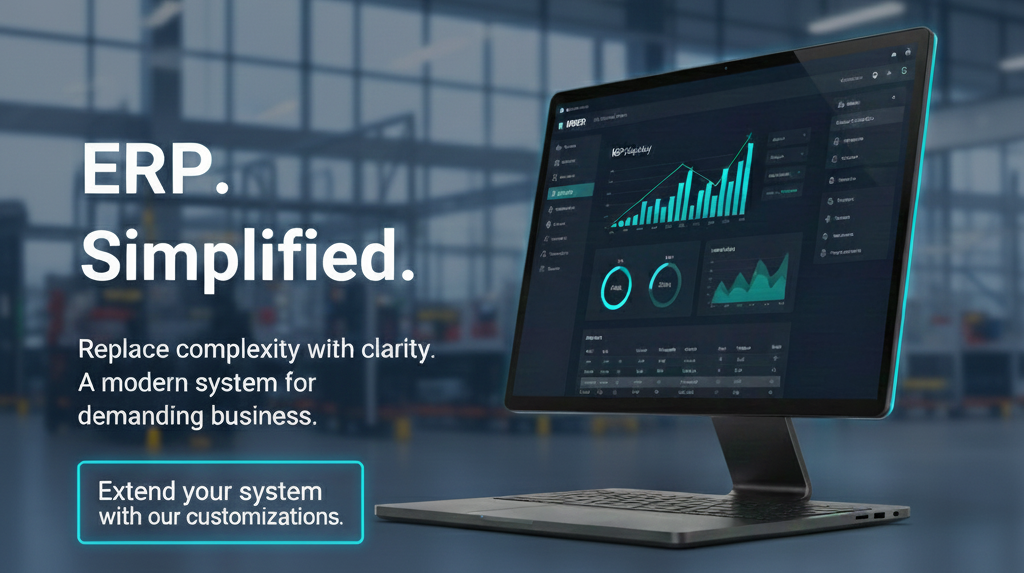Implementing IFS Cloud across multiple sites is a complex but rewarding journey. For CIOs, ERP program leaders, and supply chain managers, the key to success lies in balancing global standards with local needs, treating data migration as a strategic project, and establishing governance that scales. This guide provides actionable insights to help you avoid common pitfalls and achieve a seamless, sustainable rollout.
1. Standardization vs. Localization: Getting the Balance Right
Global templates accelerate deployment, but local rules such as tax regulations, labor laws, or reporting requirements often require deviations. The solution is to define upfront where standardization ends and localization begins. For example, VAT configurations in the EU will differ from sales tax setups in the US. Agree on these exceptions early to prevent rework and ensure compliance.
2. Data Migration: Treat It as a Project, Not a Task
Data migration is not a one-time activity. Each site presents its own data challenges, including different sources, inconsistent formats, and unique quirks. To manage this, assign ownership by domain (e.g., customer data, supplier information, item masters) and conduct trial runs early. These trials act as sanity checks, not dress rehearsals, helping you identify and resolve issues before they escalate.
3. Preventing Rollout Fatigue
Large-scale rollouts can lead to burnout, especially for teams working on later sites. To combat this, create a reusable «rollout kit» that includes training materials, test scripts, and troubleshooting guides. This ensures consistency, reduces redundant effort, and maintains high momentum across all locations.
4. Avoid Reinventing Interfaces
Local systems — such as payroll, customs, or tax engines — can complicate integrations. Instead of rebuilding interfaces for each site, capture integration patterns early. Use APIs, middleware, and OData projections to create reusable, versioned solutions. This approach saves time, reduces errors, and simplifies maintenance.
5. Scalable Governance: The Key to Consistency
Centralized control is impractical, but unchecked local deviations can lead to chaos. The solution is a «template board» where local changes are reviewed and approved transparently. This ensures that every adjustment is visible to all stakeholders, maintaining alignment and control without stifling flexibility.
6. Testing That Grows with Your Rollout
What works in one country may fail in another. Build a library of regression tests that expands with each rollout. Automate testing early to validate deployments confidently and efficiently, reducing the risk of site-specific issues slipping through the cracks.
Why This Approach Matters
Successful multi-site IFS Cloud implementations don’t treat each location as a separate project. Instead, they focus on repeatable processes, scalable solutions, and continuous learning. By doing so, organizations turn challenges into advantages, driving efficiency and growth across their global operations.
Real-World Impact
One global engineering firm applied these strategies to reduce supplier duplication by 40% and halve integration costs. By standardizing where possible, localizing where necessary, and treating data migration as a project, they transformed their rollout into a repeatable, scalable success.
Ready to Streamline Your Global Rollout?
If you’re ready to unify your business processes, boost efficiency, and drive growth, our experts can help. We specialize in multi-site IFS Cloud implementations, offering tailored strategies for clean data, solid migration plans, and repeatable governance. Contact us today to start your journey toward seamless enterprise integration.
Frequently Asked Questions
What are the key challenges in implementing IFS Cloud across multiple sites?
The main challenges include balancing global templates with local requirements, managing complex data migration, and establishing scalable governance frameworks. Addressing these requires careful planning and execution to ensure a successful deployment.
How can organizations manage local deviations in a multi-site IFS Cloud setup?
Organizations should define upfront when a site can deviate from the global template, especially for regional differences like tax configurations. This ensures consistency while accommodating local needs.
Why is data migration considered a project and not just a task?
Data migration involves cleaning legacy data, assigning domain ownership, and conducting trial runs to ensure seamless integration. Treating it as a project ensures thoroughness, reduces errors, and prevents last-minute surprises during implementation.
What strategies can prevent burnout during large-scale rollouts?
Develop reusable training materials, test scripts, and troubleshooting guides to facilitate efficient and effective training. Standardizing these resources ensures consistency, reduces resource strain, and maintains efficiency across all sites.
How can organizations avoid reinventing interfaces for local systems?
Capture integration patterns early using APIs, middleware, and OData projections. Versioning and reusing these patterns saves time, reduces complexity, and ensures scalability.
What is scalable governance, and why is it important?
Scalable governance involves a «template board» to consistently review and approve local changes. This ensures transparency, alignment, and control across all sites, preventing fragmented or unmanaged deviations from occurring.
How can organizations ensure consistent testing across multiple sites?
Build a growing library of regression tests and automate testing early. This enables efficient validation, confidence in deployments, and the ability to consistently ship updates across all locations.
Why is it important to treat a multi-site IFS Cloud rollout as a journey?
Treating it as a journey emphasizes building repeatable systems, learning from each rollout, and turning insights into scalable advantages. This mindset leads to sustainable, long-term success.
How can organizations get started with a multi-site IFS Cloud implementation?
Start by consulting experts specializing in multi-site IFS Cloud deployments. They can provide tailored guidance on data migration, governance, and best practices for a smooth implementation.


